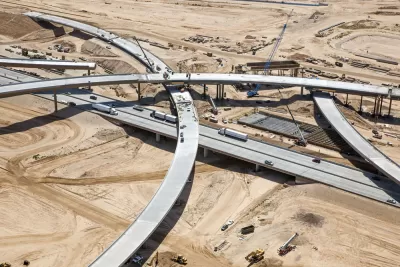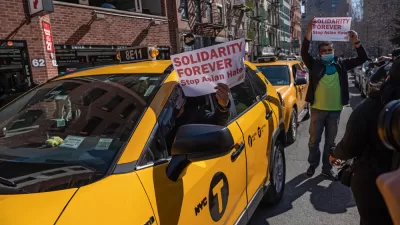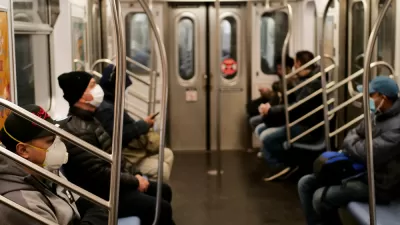Reports from the White House indicate that the Trump administration is planning to rollback federal environmental protections to expedite highway and other projects.

"President Trump will sign an executive order Thursday instructing agencies to waive long-standing environmental laws to speed up federal approval for new mines, highways, pipelines and other projects given the current 'economic emergency,'" report Juliet Eilperin and Jeff Stein.
The reports cite four anonymous sources for the news, but a formal announcement is expected soon.
"Declaring an economic emergency allows the president to invoke a section of federal law 'where emergency circumstances make it necessary to take an action with significant environmental impact without' observing normal requirements imposed by laws such as the Endangered Species Act and the National Environmental Policy Act," according to Eilperin and Stein.
An email from a senior administration officials quoted in the article defends the decision by saying it would "expedite construction of highways and other projects designed for environmental, energy, transportation, natural resource, and other uses."
As noted in the article, the Trump administration's efforts to undermine federal environmental protections predate the pandemic. In August 2019, the U.S. Department of Transportation proposed changes to shorten environmental review for infrastructure projects, and in January 2020, the Trump administration proposed changes to the the National Environmental Policy Act that would remove climate change as a consideration in federally mandated environmental reviews.
FULL STORY: Trump to sign order to waive environmental reviews for key projects

Alabama: Trump Terminates Settlements for Black Communities Harmed By Raw Sewage
Trump deemed the landmark civil rights agreement “illegal DEI and environmental justice policy.”

Study: Maui’s Plan to Convert Vacation Rentals to Long-Term Housing Could Cause Nearly $1 Billion Economic Loss
The plan would reduce visitor accommodation by 25% resulting in 1,900 jobs lost.

Why Should We Subsidize Public Transportation?
Many public transit agencies face financial stress due to rising costs, declining fare revenue, and declining subsidies. Transit advocates must provide a strong business case for increasing public transit funding.

Wind Energy on the Rise Despite Federal Policy Reversal
The Trump administration is revoking federal support for renewable energy, but demand for new projects continues unabated.

Passengers Flock to Caltrain After Electrification
The new electric trains are running faster and more reliably, leading to strong ridership growth on the Bay Area rail system.

Texas Churches Rally Behind ‘Yes in God’s Back Yard’ Legislation
Religious leaders want the state to reduce zoning regulations to streamline leasing church-owned land to housing developers.
Urban Design for Planners 1: Software Tools
This six-course series explores essential urban design concepts using open source software and equips planners with the tools they need to participate fully in the urban design process.
Planning for Universal Design
Learn the tools for implementing Universal Design in planning regulations.
Caltrans
Smith Gee Studio
Institute for Housing and Urban Development Studies (IHS)
City of Grandview
Harvard GSD Executive Education
Toledo-Lucas County Plan Commissions
Salt Lake City
NYU Wagner Graduate School of Public Service





























